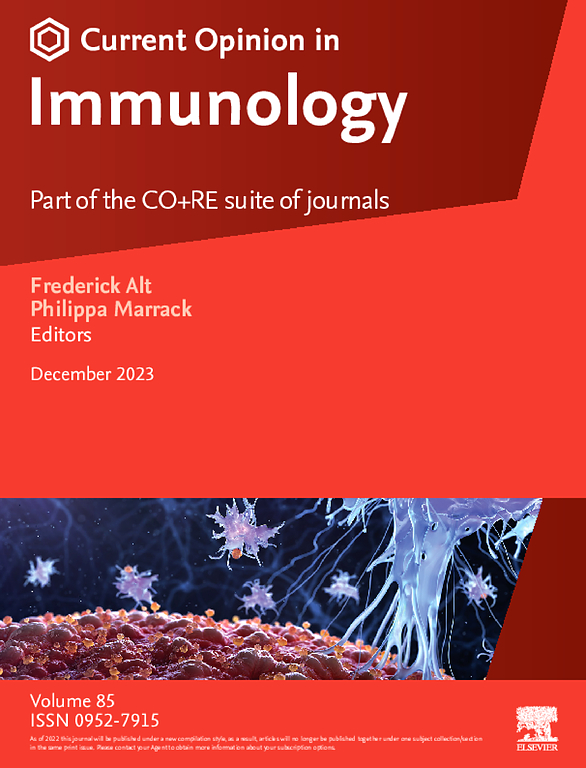The outcome of severe MIS-C managed at the Italian epicenter of the SARS-CoV-2 epidemic: a follow-up study of 50 consecutive patients
IF 5.8
2区 医学
Q1 IMMUNOLOGY
引用次数: 0
Abstract
Background
During the SARS-CoV-2 pandemic, we described a peak of a Kawasaki-like disease in children, later renamed multisystem inflammatory syndrome in children (MIS-C). We report the long-term outcomes of MIS-C patients who presented to our center.
Methods
We recorded clinical features and outcomes in patients with MIS-C admitted to our institution (February 2020–February 2022), focusing on the long-term outcome of those with a severe course.
Results
A total of 50 MIS-C patients (mean age 8.8 ± 4.3 years, 16 females) were admitted. In univariate analysis, the predictors of high-risk disease were older age; high CRP, neutrophils, ferritin, D-dimer, and transaminases; and low white blood cells, lymphocytes, platelets, albumin, and sodium. In multivariate analysis, a more severe course of the disease was associated with sodium ≤133 or ferritin >684. In two months, the symptoms disappeared. No relapses occurred during four years of surveillance.
Conclusion
The prognosis of MIS-C is favorable, even in severe cases. MIS-C resolves completely as early as eight weeks from onset and is not associated with other events over four years of observation. In our experience, careful and correct stratification in the initial phases has proven essential in setting up the correct treatment, with full recovery in all cases.
在意大利SARS-CoV-2疫情中心管理的严重misc的结果:对50名连续患者的随访研究
在SARS-CoV-2大流行期间,我们描述了儿童川崎样疾病的高峰,后来更名为儿童多系统炎症综合征(MIS-C)。我们报告到我们中心就诊的misc患者的长期预后。方法:我们记录了2020年2月至2022年2月期间入院的misc患者的临床特征和结局,重点关注重症患者的长期结局。结果共收治50例misc患者,平均年龄(8.8±4.3)岁,女性16例。在单因素分析中,高危疾病的预测因子为年龄较大;高CRP、中性粒细胞、铁蛋白、d -二聚体和转氨酶;白细胞、淋巴细胞、血小板、白蛋白和钠含量低。在多变量分析中,更严重的病程与钠≤133或铁蛋白[gt;684]相关。两个月后,症状消失了。4年监测期间无复发。结论MIS-C的预后良好,即使病情严重也不例外。MIS-C早在发病后8周就完全消退,在4年的观察中与其他事件无关。根据我们的经验,在初始阶段进行仔细和正确的分层对于制定正确的治疗方法至关重要,在所有情况下都能完全恢复。
本文章由计算机程序翻译,如有差异,请以英文原文为准。
求助全文
约1分钟内获得全文
求助全文
来源期刊
CiteScore
13.30
自引率
1.40%
发文量
94
审稿时长
67 days
期刊介绍:
Current Opinion in Immunology aims to stimulate scientifically grounded, interdisciplinary, multi-scale debate and exchange of ideas. It contains polished, concise and timely reviews and opinions, with particular emphasis on those articles published in the past two years. In addition to describing recent trends, the authors are encouraged to give their subjective opinion of the topics discussed.
In Current Opinion in Immunology we help the reader by providing in a systematic manner: 1. The views of experts on current advances in their field in a clear and readable form. 2. Evaluations of the most interesting papers, annotated by experts, from the great wealth of original publications.
Current Opinion in Immunology will serve as an invaluable source of information for researchers, lecturers, teachers, professionals, policy makers and students.
Current Opinion in Immunology builds on Elsevier''s reputation for excellence in scientific publishing and long-standing commitment to communicating reproducible biomedical research targeted at improving human health. It is a companion to the new Gold Open Access journal Current Research in Immunology and is part of the Current Opinion and Research(CO+RE) suite of journals. All CO+RE journals leverage the Current Opinion legacy-of editorial excellence, high-impact, and global reach-to ensure they are a widely read resource that is integral to scientists'' workflow.

 求助内容:
求助内容: 应助结果提醒方式:
应助结果提醒方式:


